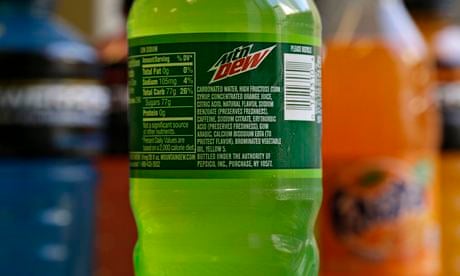Some drinks companies use brominated vegetable oil (BVO) to stop ingredients in fruit-flavoured soft drinks from separating out. The additive is banned in Europe and Japan, but in north America drinks can contain BVO at up to 15 parts per million (ppm).
Research into the health effects of BVO is limited, but there are concerns that bromine might accumulate in fatty tissue in the body and cause harmful effects. BVO is an organobromine compound, and others, notably flame retardants, can build up in food chains and affect development in birds and animals.
In 2012 German scientists found that several US soft drinks contained BVO at around 8ppm. They worked out that an average adult drinker received thousands of times more organobromine from the drinks than from other sources, including flame retardants that leak into the environment.
In 1997 a doctor at the University of California, Davis, reported the case of a male patient who arrived at hospital with a raft of symptoms including headache, fatigue, poor balance, coordination and speech, and memory loss. His condition worsened until he could no longer walk. Eventually, doctors diagnosed bromism, known historically in medicine from the overuse of bromide salts used in sleeping pills. The patient turned out to have consumed two to four litres of cola a day before falling ill. He was treated with dialysis to remove the bromide from his blood.
Michael Walker, an independent food consultant, said: "There have been toxicological concerns around brominated vegetable oils, mainly to do with accumulation of bromine in fatty tissues of experimental animals and isolated human case reports, although the data are quite old and the levels experimentally fed were quite high.
"However, as these additives have been banned in the UK and EU for many years, I welcome the Coca-Cola decision [to remove BVO from its drinks]. At the very least it avoids problems for UK companies and enforcement through imports and provides consumers with reassurance."
